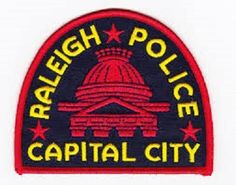RALEIGH – Residents will pay a higher property tax rate in the coming year to help pay for Dix Park and expand Raleigh’s affordable housing stock. But city leaders won’t spend additional tax dollars to meet the demands of public safety employees seeking big raises.
In a work session Monday, the Raleigh City Council approved a $858.6 million budget for the fiscal year that begins in July. The new spending plan, which is 3 percent bigger than the current budget, includes the equivalent of a 2 cent property tax rate increase that will generate about $11.4 million in additional revenue.
Half of the extra funds will help the city finance debt it took on last year to buy the 308-acre former Dix hospital property near downtown for $52 million. The other $5.7 million will go toward expanding Raleigh’s affordable housing program from 200 units to 325 units.
Raleigh is growing so fast that the city must preserve housing that teachers, city employees and other working-class residents can afford, Mayor Nancy McFarlane said.
“We don’t want people to have to spend more than a third of their income on housing. Right now, we’ve got about 30,000 in the city that do that,” she said. “You don’t want a city to become so overpriced that … it hurts our job market.”
Despite a push for bigger raises from police and fire unions who picketed City Hall last week, Raleigh leaders said police and firefighters will get the same 3 to 3.5 percent pay bump as other city employees.
The Raleigh Police Protective Association and the Raleigh Professional Fire Fighters Association have pushed for a 15 percent pay increase over the next two years. Group leaders say Raleigh’s pay for public safety officials trails that of smaller Triangle communities, making it easy for other towns to poach recruits.
The issue divided the City Council. Four of the council’s eight members said they wanted to pay public safety employees more than the 3.5 percent raise this year. Others, including McFarlane, said they want to reassess fire and police pay after a consultant completes a $150,000 compensation study for Raleigh employees next spring.
Matthew Cooper, president of the Raleigh Police Protective Association, said he thought it was strange that the City Council voted on its budget during a work session instead of the regular council meeting Tuesday. Postponing a bigger raise when police morale is already low could lead to even higher attrition rates, he said.
“I don’t think they can afford to wait around (for raises),” Cooper said. “And (officers) can receive $5,000 to $6,000 by leaving. They would just have to do a couple weeks of training with their new agency.”
The higher property tax rate is expected to cost the owners of an average Raleigh home, valued at $251,300, an extra $95.16 a year.
The budget also includes higher fees for city services. The average Raleigh resident will pay about 75 cents more in solid waste fees per month, $1 more in stormwater fees and $1.99 more in monthly utility fees, which will fund infrastructure maintenance.
The City Council’s move comes a year after Raleigh raised property taxes 1.72 cents per $100 in assessed value to fund debt for parks. It comes the same day the Wake County Board of Commissioners raised the county’s property tax rate by the equivalent of 1.35 cents to help fund schools and health care for the mentally ill.
Under the combined property tax rate hikes and city fee increases, the average Raleigh homeowner will pay an extra $129 in property taxes in the coming year.


